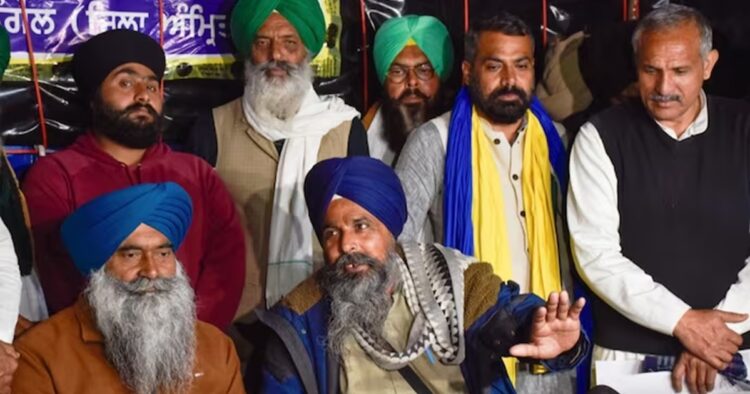After the central government proposed a new plan for the Minimum Support Price (MSP) for crops, farmer leaders have decided to pause their ‘Delhi Chalo’ march until they study the proposal. This decision follows a fourth round of talks held on Sunday between Agriculture Minister Arjun Munda, Commerce Minister Piyush Goyal, Minister of State for Home Affairs Nityanand Rai, and farmer leaders in Chandigarh. Thousands of protesting farmers have been camping at the Punjab-Haryana border, demanding various reforms including a legal guarantee of MSP.
During the meeting, Minister Goyal announced that the panel proposed government agencies to buy pulses, maize, and cotton crops at MSP for five years through agreements with farmers. Cooperative societies like NCCF and NAFED will enter contracts with farmers growing specific crops like ‘tur dal’, ‘urad dal’, ‘masoor dal’, or maize, with no quantity limit on purchases. A dedicated portal will facilitate this process, Goyal stated after the meeting.
The farmer leaders, represented by Sarwan Singh Pandher, expressed their intention to review the government’s proposal over the next two days. Pandher mentioned that discussions within their forums and with experts will inform their decision-making process. He emphasized that the ‘Delhi Chalo’ march remains on hold until February 21, pending resolution of all issues.
Pandher highlighted the pending discussion on loan waivers and other demands, expressing optimism for their resolution within the next two days. He iterated that the ‘Delhi Chalo’ march could resume at 11 am on February 21 if unresolved issues persist, but both parties aim to find a peaceful resolution through dialogue.
The series of meetings between union ministers and farmer leaders, initiated on February 8, have yet to yield conclusive results. Protesting farmers from Punjab have maintained their presence at Shambhu and Khanauri points on the state’s border with Haryana since February 13, when their ‘Delhi Chalo’ march was halted by police.
The demands of the protesting farmers, articulated by the Samyukta Kisan Morcha (Non-Political) and the Kisan Mazdoor Morcha, encompass a wide array of reforms. These include a legal MSP guarantee, implementation of the Swaminathan Commission’s recommendations, pension for farmers and farm laborers, debt waivers, no electricity tariff hikes, withdrawal of police cases, justice for victims of the 2021 Lakhimpur Kheri violence, reinstatement of the Land Acquisition Act, 2013, and compensation for families of farmers who died during previous agitations in 2020-21.

















Comments